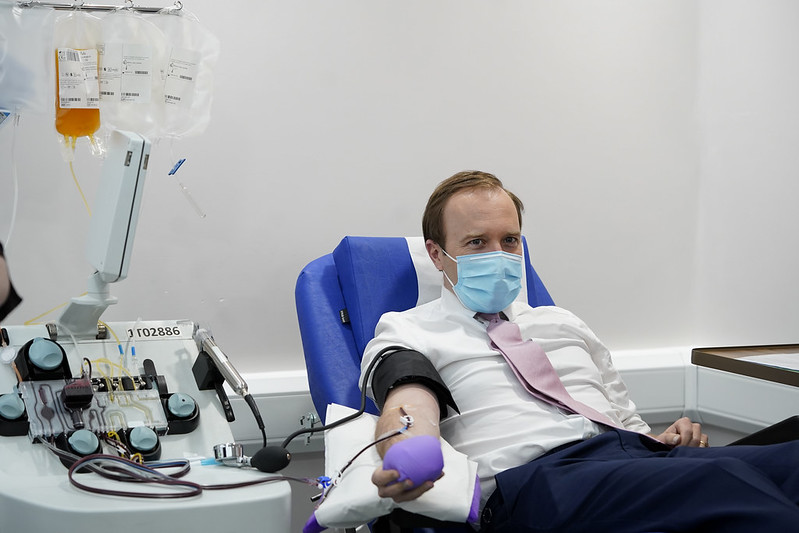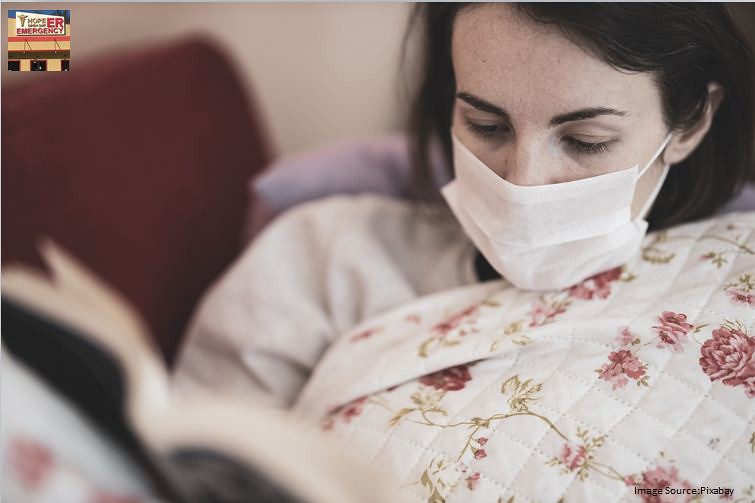SHARES

“COVID-19 hit me so suddenly. None of us were prepared for it. The trail of despair it leaves in our family is going to stay for a long time. We still have faith that everything is going to be alright, although it will be a long road to recovery.” Jim, 47, a survivor of severe COVID-19 infection with days at the ICU, is blessed to have his family by his side.
Recovery From COVID-19
Most patients with mild symptoms will recover in two weeks time. On the other hand, those with severe COVID-19 take about 3-6 weeks to recover. Generally, men, the elderly, and patients with pre-existing medical conditions or lower body immunity tend to have severe infections.
At the present time, CDC’s latest recommendation considers recovery as three days after fever and other symptoms subside, alongside two days of consecutive negative tests. In China, the definition for recovery is stricter in which an additional criteria of improvement in lung imaging finding is required.
Despite the fact that majority (>80%) of patients with COVID-19 recovers well, there are still a large number of patients who suffer from severe infection and complications. These complications can take a long time for actual recovery.
Long Term Impact from Severe Infections of COVID-19
1. Lung Scarring
The virus infects our lungs, causing massive inflammation and damage that result in scarring of the lungs. As a consequence, many survivors have reduced lung function and activity level. Symptoms include breathlessness, fatigue, and lack of energy. In order to improve lung function and get back to previous activity level when we are well, survivors are usually sent home with an incentive spirometer. This is a tool for exercising deep breathing so as to rehabilitate our lungs.
In situations where our lung function deteriorates to a critically low level, we will need the assistance of mechanical device for normal breathing. This includes wearing a mask that delivers air at higher oxygen concentration to compensate for lower lung function.
2. Heart Failure
Severe infection of COVID-19 can cause damage and subsequent failure of our bodily organs. People with pre-existing medical condition such as high blood pressure, diabetes and heart disease may have had overwhelming bloodstream infection (sepsis). The resulting widespread inflammation puts great burden on our heart, leading to heart failure. As a result, the heart becomes weak at pumping blood to our entire body. Therefore, we get tired more easily during activity and often feel out of breath.
3. Blood Clots and Stroke
As the virus enter our bloodstream, our blood tend to clot more easily. These small blood clots can travel to our body organs and block up small vessels, causing multiple organ damage. If the blood clots travel to our brain, they clog up small vessels and deprive the brain tissues from blood and oxygen. This situation is called stroke. The patients usually lose part of their brain control over their body, such as speech, facial muscles movement, swallowing, arm and leg movement, etc.
4. Kidney and Liver Damage
Organ damage due to severe infection is especially true for both kidneys and the liver, which receives the great body of our blood circulation. Abnormalities in liver function test can be an early sign of worsening disease and even multi-organ failure. Likewise, kidneys are similarly affected as the delicate vascular structure of the kidneys get destroyed easily during sepsis. Moreover, the use of medication that needs to be filtered and excreted by the kidneys causes further stress on the kidneys.
In those cases where the kidney function drops to a very low level, the survivors would need to undergo frequent dialysis.
5. Mental Health Problems
Besides reported symptoms of recurring breathlessness and fatigue during recovery, the third most prevailing issue is mental health. Falling sick to COVID-19 can take its toll on our mental health and that of the people around us. By losing part of human contact in isolation and ICU, behind masks and gloves, we feel fearful of dying, invasive treatments, pain and left unable to communicate. Post traumatic stress disorder had been reported in a third of hospitalised patients and half of those in the ICU. Watch out for signs of stress, anxiety and depression in people around us. Make sure to seek medical attention as early as possible.
Conclusion
Generally, majority of patients with COVID-19 recovers well within 2 weeks. Still, a large number of patients have suffered from severe infection and complications that require a long time, much patience and faith for recovery. Seek medical advice on programs to support your rehabilitation needs and to help you on the road to recovery.
References:
1. Pathak N. Life after COVID-19: the road to recovery [WebMD]. WebMD LLC. 2020. (Available from: https://www.webmd.com/lung/news/20200513/complications-on-the-road-to-recovery-after-covid; last updated on 2020 May 13; last accessed on 2020 Aug 22)
2. Myupchar. Life after COVID-19: what the road to recovery from the coronavirus looks like [Internet]. Firstpost. 2020. (Available from: https://www.firstpost.com/health/life-after-covid-19-what-the-road-to-recovery-from-the-coronavirus-looks-like-8398841.html; last updated on 2020 May 25; last accessed on 2020 Aug 22)
Find a GP/Family Doctor in Malaysia, on GetDoc
Find a GP/Family Doctor in Singapore, on GetDoc
by Chang Xian
View all articles by Chang Xian.







